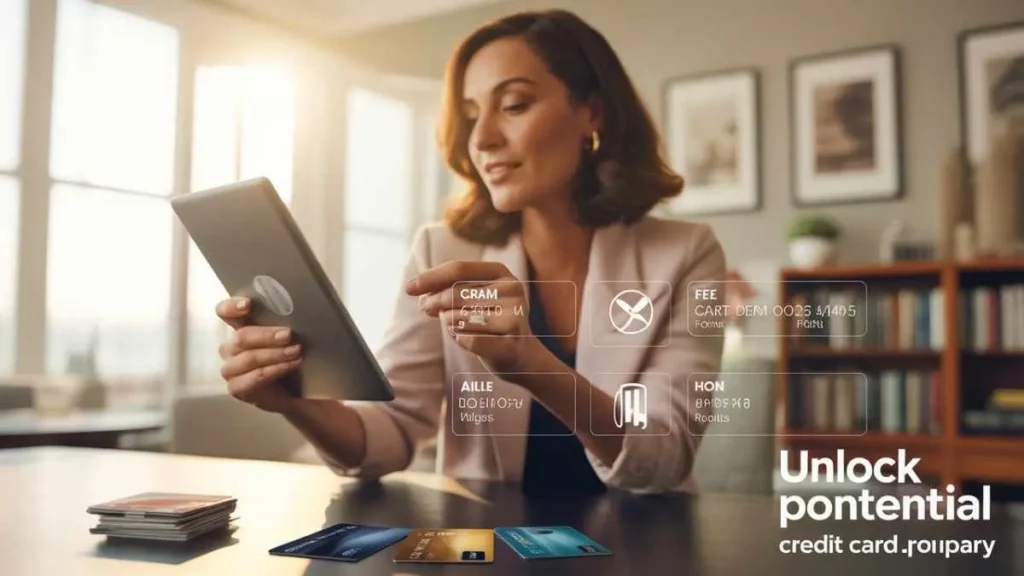
Many Americans earn a variety of rewards through credit cards—points, miles, cash back, or exclusive perks like airport lounge access. Naturally, some wonder: Can I sell my credit card benefits for cash? While the idea of monetizing your rewards sounds appealing, understanding the legal rules, cardholder agreements, and practical alternatives is essential before taking action. This guide breaks down what you can and cannot do and how to maximize your benefits safely.
What Are Credit Card Benefits?
Credit card benefits go beyond the basic ability to borrow money. They are incentives designed to reward spending and build customer loyalty. Common types of benefits include:
- Rewards Points & Loyalty Programs: Earned from everyday purchases and redeemable for travel, merchandise, or cash back.
- Cash Back: A percentage of your spending returned as cash, statement credits, or direct deposits.
- Airline & Hotel Miles: Points that can be redeemed for flights, upgrades, or hotel stays.
- Travel & Lifestyle Perks: Airport lounge access, concierge services, travel insurance, and purchase protection.
These benefits are valuable, but not all are “transferable” or sellable under U.S. law and credit card terms.
Can You Legally Sell Credit Card Benefits?
1. The Cardholder Agreement Rules
Every credit card comes with a cardholder agreement—a legally binding contract between the issuer and you. Most agreements explicitly prohibit selling or transferring rewards for cash. Violating these rules can lead to:
- Loss of points or rewards
- Account closure
- Potential forfeiture of outstanding balances
Key takeaway: Selling rewards without issuer permission is usually a violation and can carry serious consequences.
Disclaimer: Cardholder agreements vary by issuer. Consumers should review their terms and contact the card issuer for clarification before attempting to sell or transfer benefits.
2. Are Rewards Transferable?
Some rewards programs allow limited transferability:
- Points or Miles: Some issuers allow transferring points to family members or friends, sometimes for a fee.
- Gift Cards: Redeeming points for gift cards and gifting them to others is often allowed.
- Travel Bookings: Using points to pay for travel for someone else is typically permitted.
Always check your card’s rewards redemption rules before attempting transfers.
Legal Alternatives to Selling Your Rewards
Even if you cannot sell rewards directly, there are legal ways to get value from unused benefits.
1. Redeem for Cash or Statement Credit
- Many cards allow converting points to cash back or statement credits.
- This is the closest legal alternative to selling rewards.
2. Gift or Transfer Points
- Some programs allow transferring points to other loyalty accounts or family members.
- Example: Airline miles often allow transfers between frequent flyer accounts for a fee.
3. Use Points to Book Travel or Experiences for Others
- Redeem points for flights, hotel stays, or experiences for friends and family.
- This allows you to monetize your benefits indirectly while staying compliant.
4. Redeem for Merchandise or Gift Cards
- Points can often be redeemed for electronics, household items, or gift cards.
- You can then give these items as gifts or use them for personal savings.
5. Maximize Perks and Non-Monetary Benefits
- Lounge access, travel insurance, and purchase protection offer real-world value.
- Fully using these perks can save money equivalent to “selling” rewards.
Step-by-Step Guide to Maximize Your Credit Card Benefits Legally
- Review Your Cardholder Agreement
- Check sections on rewards, points transfer, and prohibited activities.
- Identify Rewards with Cash Value
- Points that can be redeemed for cash or statement credits are easiest to “monetize.”
- Explore Family or Friend Transfers
- Look for options to transfer points within approved programs.
- Redeem for Gift Cards or Merchandise
- Convert points to gift cards you can use or gift legally.
- Use Points for Travel Bookings
- Book flights or hotels for others if allowed by your card’s terms.
- Track and Plan Reward Expiration Dates
- Ensure points don’t expire unused; use them strategically for maximum value.
Read Also- 2D Credit Card Payment Explained
FAQ: Selling and Transferring Credit Card Benefits
Can I sell my points for cash?
No. Most credit card agreements prohibit selling points or rewards for cash. Doing so could result in account closure.
Can I transfer rewards to another person?
Some programs allow limited transfers, often to family members or loyalty accounts, sometimes with a fee. Always confirm with your issuer.
Can I use points to book travel for someone else?
Yes. Redeeming points for travel for friends or family is typically allowed and legal.
What happens if I violate the cardholder agreement?
Potential consequences include loss of points, account closure, and forfeiture of outstanding balances.
Can I gift rewards points or cash back?
Redeeming for gift cards or cash back and giving them as gifts is legal and safe under most card programs.
Are there legal ways to monetize credit card benefits?
Yes. Redeeming points for cash, gift cards, merchandise, or travel bookings for others are all compliant options.
Conclusion: Maximize Rewards Safely
While the idea of selling credit card benefits may seem tempting, directly selling points or perks is generally against U.S. credit card rules. Fortunately, there are many legal ways to monetize and maximize rewards:
- Convert points to cash or statement credits
- Gift or transfer points within approved programs
- Redeem for travel, gift cards, or merchandise
- Fully utilize non-monetary perks
By following these guidelines, you can extract real value from your credit card benefits without risking account penalties. Always review your cardholder agreement and consult your issuer when in doubt.
Your rewards are valuable—use them wisely, legally, and strategically to get the most benefit without any risk.

Emma Rose is a U.S.-based personal finance writer and a regular contributor at Cardix.us. She focuses on topics like credit cards, credit scores, and everyday money management. Emma’s writing makes complex financial concepts simple and practical, helping readers make smarter credit and spending decisions with confidence.


